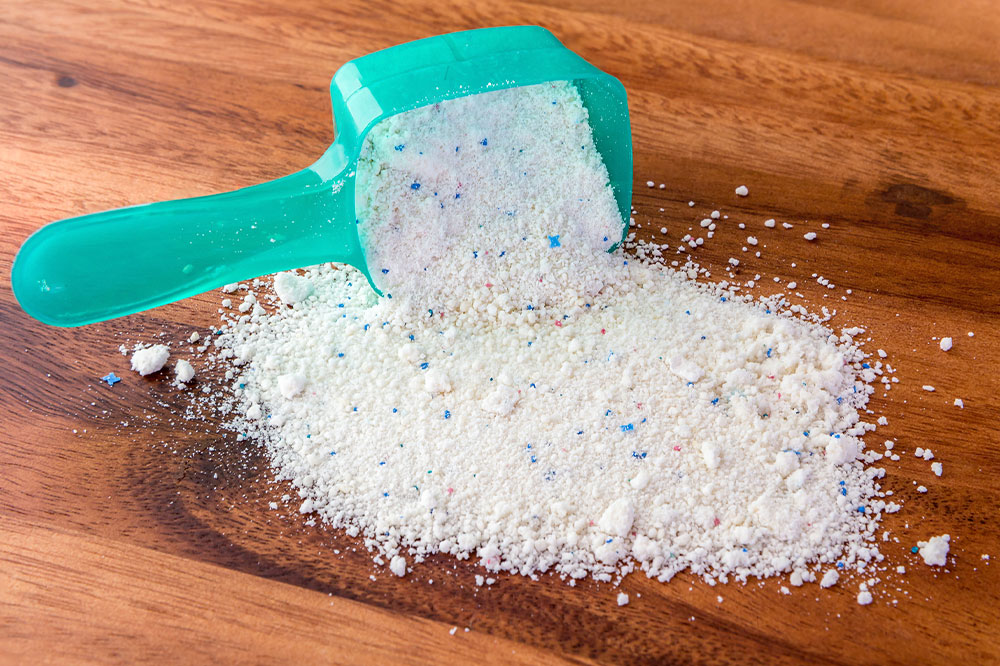6 detergent ingredients to avoid for sensitive skin

Sensitive skin is susceptible to toxic body care products, inferior fabric quality, and poor laundry detergents. A heavy detergent with chemicals, preservatives, and artificial fragrances can seep into the fibers of one’s clothing. So, once these ingredients come in direct contact with the skin, they can lead to allergic reactions and skin conditions. Therefore, here are six detergent ingredients to look out for that are known to irritate sensitive skin and must be avoided.
Petroleum distillates
Petroleum distillates, also known as naphthas, are used to remove stubborn stains like grease, but they can irritate the skin because they are made from synthetic crude oil. According to a study, exposure to petroleum distillates over an extended period of time can even result in cancer, lung damage, lung inflammation, and mucous membrane damage.
Sodium Laureth Sulfate (SLS)
SLS, a common ingredient found in detergents, is frequently added to produce foam, even in soaps and shampoos. However, SLS irritates the skin and triggers psoriasis, eczema, and rosacea. People with sensitive skin or those who are prone to allergies should look for detergents without SLS.
Bleach
Bleach, an ingredient commonly used in detergents, brightens garments, especially white ones, by converting UV radiation to visible light. The ingredients can be found hidden under the ‘optical brighteners’ term. However, bleach can cause allergic reactions on sensitive skin and irritate one’s eyes and lungs. Additionally, it is also poisonous to aquatic life.
Formaldehyde
Formaldehyde is an inexpensive preservative and an antibacterial ingredient found in detergents and dishwashing liquids. Exposure to the substance on a regular basis might irritate the respiratory system, eyes, and lungs and trigger allergic reactions such as eczema and contact dermatitis.
Phosphates
Phosphates, especially sodium tripolyphosphate, are known to soften hard water. Despite being useful for washing clothes, the ingredient has been outlawed in many states because of its harmful effects on the environment. It mostly destroys the natural ecology and robs marine species of their oxygen supply.
Synthetic fragrances
Synthetic fragrances can be made from a blend of about 4,000 chemicals, many of which are derived from petroleum. In addition, harsh fragrances can irritate the respiratory system and induce skin infections that result in dryness, redness, itching, and scaly skin.
Conclusion
It is advisable to read the labels or look up the manufacturer’s website before making any purchases. Apart from the ingredients, it is also recommended to use only the prescribed amount of quality detergent in a high-efficiency washing machine to avoid skin conditions.








